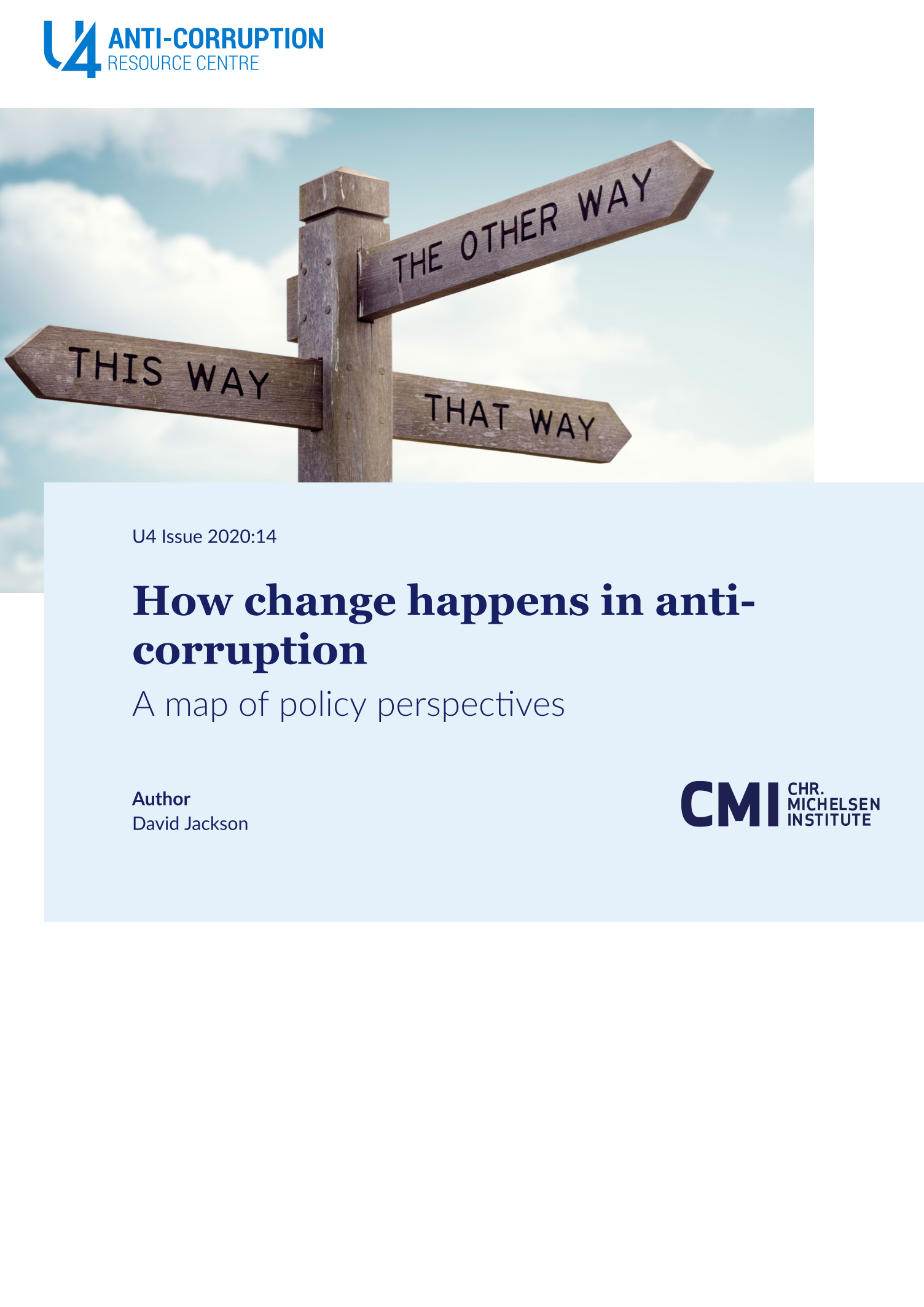Main points
- Anti-corruption policy over the past two decades has been influenced by a ‘state modernisation’ approach that has frequently – but not always – been unable to to achieve sustainable pathways out of widespread corruption.
- The literature suggests five emerging policy perspectives that diverge in some way from the dominant state modernisation paradigm and rest on alternative theories of change.
- The ‘indirect’ perspective questions the premise that direct anti-corruption reforms spur transitions to integrity, arguing that it is deeper changes to governance and society that allow for sustained progress.
- The ‘localisation’ perspective holds that the choice of anti-corruption targets should be determined by local conditions and not by preconceived notions of what anti-corruption should look like or by donor preferences.
- The ‘nurturing norms’ perspective suggests that agency in successful transitions results not from the development of formal institutions, but from informal institutions that uphold anti-corruption as an effective social norm.
- The ‘big bang’ perspective critiques the incremental approach to anti-corruption and calls for rapid, comprehensive reforms to transform societies stuck in a high-corruption equilibrium.
- The ‘transnational (state to state)’ perspective emphasises that the policy response to corruption in one state must be linked to policies in other states. These include reforms within aid-giving states as well as use of political leverage against corrupt elites.
